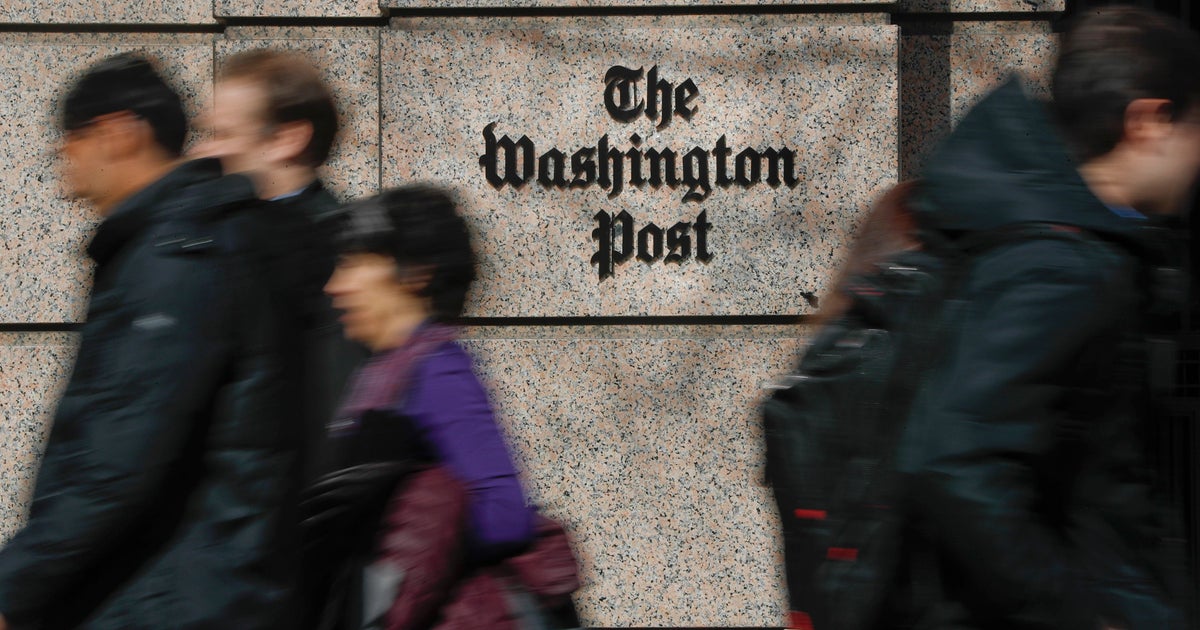
The Washington Post’s publisher, William Lewis, on Friday said the newspaper would not endorse a presidential candidate in this year’s election or in future elections, a stance that sparked outrage from and some of its current and former employees, as well as subscribers.
“The Washington Post will not be making an endorsement of a presidential candidate in this election. Nor in any future presidential election. We are returning to our roots of not endorsing presidential candidates,” Lewis wrote in a note published on the newspaper’s website.
The decision follows a move by Los Angeles Times owner Patrick Soon-Shiong to block that newspaper’s endorsement of Vice President Kamala Harris, which has sparked the resignation of the editorials editor, Mariel Garza, followed by the resignations of two other members of its editorial board.
Both Soon-Shiong and Washington Post owner Jeff Bezos are billionaires who made their fortunes outside the media industry.
Former WaPo editor objects
Media observers decried the decisions, while some readers of the newspapers said they are canceling their subscriptions.
“This is cowardice, with democracy as its casualty,” wrote Marty Baron, the former editor of the Washington Post, who retired in 2021, on X Friday about the Washington Post’s decision. Former President Donald Trump “will see this as an invitation to further intimidate owner @jeffbezos (and others). Disturbing spinelessness at an institution famed for courage.”
The Washington Post Guild, which represents roughly 1,000 journalists and other workers at the media company, expressed concern that corporate management had interfered with the paper’s editorial decision-making process.
“According to our reporters and Guild members, an endorsement for Harris was already drafted, and the decision to not to publish was made by The Post’s owner, Jeff Bezos,” the labor group said In a post on X. “We are already seeing cancellations from once loyal readers. The decision undercuts the work of our members at a time when we should be building our readers’ trust, not losing it.”
Robert Kagan, an editor at large for the Washington Post, resigned from the editorial board as result of the decision not to endorse a candidate, according to NPR’s David Folkenflik. “Kagan has been a persistent conservative critic of Trump, tying him to an autocratic tradition,” Folkenflik wrote on X. “Uniformly outraged response from staff.”
Some readers of both the Post and the Los Angeles Times said they planned to cancel their subscriptions, with some posting images of their subscription cancellation notices.
“Great, another billionaire protecting his own self-interest instead of the country’s. Nice knowing you, @washingtonpost. Subscription canceled,” wrote Hollywood director Paul Feig on X.
Zach Wahls, an Iowa state senator and a Democrat, wrote, “I am a strong believer in paying for serious, high-quality journalism, and that is exactly why I am canceling my @washingtonpost subscription over this timid, cowardly decision that could not come at a worse possible — or more revealing — time.”
The vast majority of reader responses on social media were negative, with many saying they had canceled their subscriptions, although a few expressed support for the Washington Post. “For the first time in my adult life, I’m proud of the Washington Post,” one reader wrote.
Lewis didn’t immediately return a request for comment, nor did Los Angeles Times executive editor Terry Tang. Washington Post Executive Matt Murray also did not respond to an email requesting comment.
Los Angeles Times resignations
On Thursday, Los Angeles Times veteran journalists Robert Greene and Karin Klein announced their resignations one day after the editorial page editor Garza left in protest over Soon-Shiong’s decision not to endorse a candidate.
Greene, a Pulitzer Prize winner for editorial writing, said in a statement shared with the Columbia Journalism Review that he was “deeply disappointed” in the decision not to endorse Harris.
“I recognize that it is the owner’s decision to make,” he wrote. “But it hurt particularly because one of the candidates, Donald Trump, has demonstrated such hostility to principles that are central to journalism — respect for the truth and reverence for democracy.”
Garza said the board had intended to endorse Harris and that she had drafted the outline of a proposed editorial, but that was blocked by Soon-Shiong.
An editorial board operates separately from the newsroom, and its writers’ job is to present an issue and then take a side and lay out arguments to defend it.
